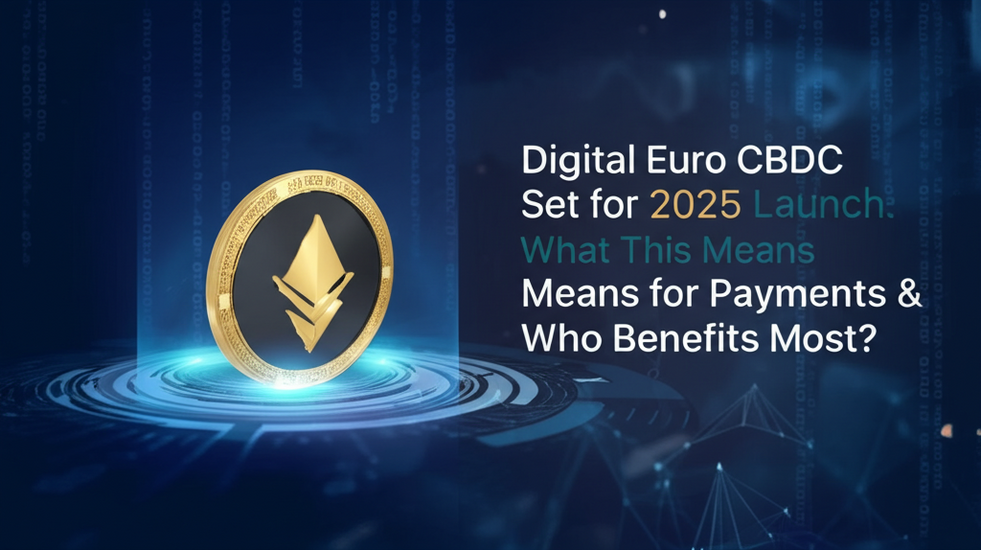Digital Euro CBDC Set for 2025 Launch: What This Means for Payments & Who Benefits Most?

The push for a European central bank digital currency (CBDC) is gaining momentum, with European Central Bank President Christine Lagarde setting a target launch date of October 2025 for the digital Euro.
Lagarde described the initiative as “critically important” and increasingly urgent in recent statements. The digital Euro represents a significant step by a major economic bloc into the world of digital currencies, though distinct from decentralized cryptocurrencies.
This CBDC aims to facilitate instant, secure payments across the Eurozone. However, unlike many crypto assets, transactions and user wallets would operate under the direct oversight of the ECB, ensuring full regulatory compliance but also sparking discussions about user privacy.
Lagarde highlighted that meeting the 2025 deadline depends heavily on European legislative bodies—the Commission, Council, and Parliament—finalizing the required legal structure. Without this legislative green light, the project cannot proceed.
Despite some past resistance from member states, the project is attracting significant interest from established financial players. Major banks and payment providers are seen as key potential beneficiaries. For instance, UniCredit’s leadership has publicly backed the digital Euro, stressing the importance of banks being deeply integrated into its rollout. Understanding the fundamentals of such systems is crucial; explore more about [[What are CBDCs?]] if you’re interested.
European fintech companies also stand to gain considerably. Firms like MONEI are already involved in testing phases, anticipating faster and more secure payment options for users. The digital Euro could empower these companies to better compete in the global digital payments arena, an area where U.S. firms have often held an advantage.
The development potentially offers [[EU Fintech Innovations]] a chance to leverage a regulated, large-scale digital payment network, marking a new chapter in Europe’s financial technology landscape.
